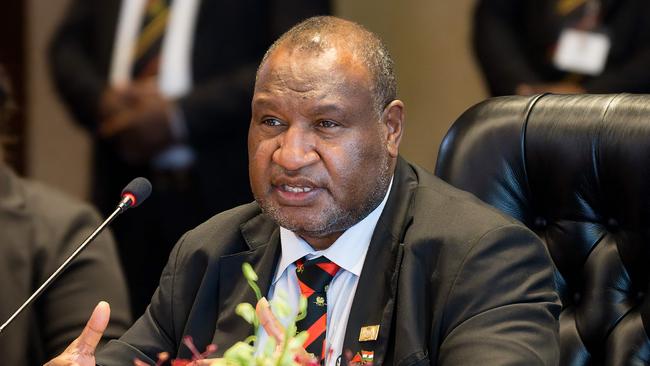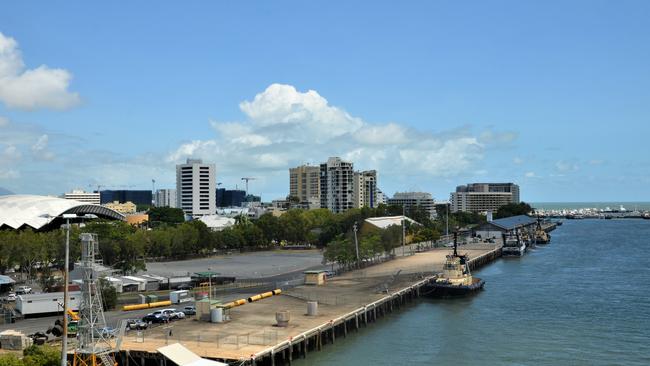Energy industry says Papua New Guinea government not offering enough ‘clarity’ on renewables
Papua New Guinea sees renewables as key to furthering development aspirations, but industry groups say the country’s government is not offering guidance.
Papua New Guinea sees renewables as a path to meeting its development aspirations as it marks 48 years of independence from Australia, but industry groups say the country’s government is not offering guidance.
They criticise the government for not clarifying how it plans to lower emissions to net zero by 2050, while the country’s leaders say it is up to industry to come up with solutions.
The dispute comes as Papua New Guinea seeks to attract greater investment in the energy space.
Speaking at the PNG Petroleum & Energy Conference in Port Moresby this week, Wapu Sonk, the managing director of the state-backed Kumul Petroleum, said the country remained underdeveloped on that front.
PNG Prime Minister James Marape told delegates from local and international businesses including Santos, TotalEnergies and ExxonMobil that “no one outside of PNG should preach to me about net carbon zero”.
“My country, the holder of one of the largest undisturbed tropical rainforests has a carbon sink propensity of a 100 million tonnes of carbon every year,” he said.
“Our own commitment to global responsibilities in climate change remains that by 2050, we will be net zero, but we are already negative.”

However, not all in his government agree about the current trajectory.
International Trade and Investment Minister Richard Maru said that the conversation about cleaner energy had not yet started in the country.
“The whole world is talking about total decarbonisation by 2050. Yes, they may not get there. But we haven’t even started talking the language,” he said.
“Every country talks about food security, energy security, climate change security.
“This country doesn’t even talk about these major things.” Mr Maru, who some say has aspirations to be prime minister one day, said that the government needed to seriously look at how it encouraged investment in cleaner energy sources.
“I know in Australia when they started a green agenda they gave incentives for people to put solar panels up in their houses,” he said.
“How do we make this country more competitive in the long term? How do we drive policies where the cost of producing a can of fish is cheaper or cheaper than they’re producing? We’re not really seeing real progress in this space.”
He said that renewable energy was the key to lowering power costs, which are some of the most expensive in the world, and would allow PNG to compete against other countries in the region.
He said PNG should become a major manufacturer of electric cars, since the country had some of the minerals needed to make batteries.
But industry and government differ on who is responsible for going green and coming up with the solutions.
Renewable energy is likely to pay a key role in plans to provide 70 per cent of the population with access to electricity across challenging and isolating terrain by 2030, compared to about 15 per cent now.
The government said that it was not seeing proposals come in from business on renewable projects and that industry groups should use the conference to come up with ideas.
“We need to come up with proposals that are pragmatic and practical and things we can do right away.
“They are obviously low-hanging fruits. So let’s bring forward some proposals,” Mr Maru said.

However, various groups question the government’s approach, saying it has offered little direction about what its priorities were in the renewable space, leaving many investors unsure.
Nasfund chief executive Rajeev Sharma said that a lack of regulation was behind the country’s lack of investment and interest for renewable energies.
“If you go to any other country, rooftops are filled with solar panels,” he said.
“Whether we need batteries or off-grid, we still need to pay the bills, so that clarity is not there.
“I have not yet seen any proposal for a large-scale investment which has come our way to evaluate. I guess it is lack of clarity.”
The US Agency for International Development senior project finance adviser for the PNG electrification partnership, Julinette Bayking, agreed that along with further clarity from the government, the country needed to guarantee risk projects.
“For off-grid, I think it’s very important. I’m working with so many countries outside PNG.
“Off-grid rural electrification should be subsidised. The subsidy is key to rural electrification and for this country to be able to meet the 70 per cent electrification target,” she said.
Various delegates were of the view that the government had not developed its energy policy enough. Current measures were “stagnant”, Professor Chalapan Kaluwin said.
Others believed that the government should look to create a think tank to work through solutions to allow for cleaner and cheaper energy.
Santos senior vice-president of PNG stakeholder management Wayne Kasou said that the country was well-placed to establish new, large-scale industries producing carbon offsets that would be in heavy demand from emitting countries that lacked competitive advances in carbon storage.
This reporter travelled to Port Moresby as a guest of the PNG Petroleum & Energy Conference.




To join the conversation, please log in. Don't have an account? Register
Join the conversation, you are commenting as Logout